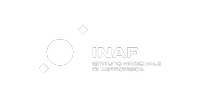RADIOBLOCKS - New science in Radio Astronomy: applying cutting-edge technology to enhance the entire data chain, from receiver to final output
Abstract: The goal of the RADIOBLOCKS project is to achieve a maximal boost for the European major world-leading research infrastructures in radio astronomy, which over the years have invested heavily in maintaining existing facilities as well as in substantial upgrade programmes, after identifying common challenges towards their mid- and long-term scientific visions. In this project, the institutes responsible of these facilities join forces, together with partners from industry and academia, in order to develop “common building blocks” for technological solutions beyond state-of-the-art, that will enable a broad range of new science and enhance European scientific competitiveness. They share the need to continuously improve their capabilities in order to enable new science: sensitivity, field of view, bandwidth, angular, time and frequency resolution, commensality and on-sky time, reaction time and RFI mitigation. Engagement with industry to co-develop advanced technologies will increase the partners’ technological levels and strengthen their market positions, creating a true European innovation system. This project carries out carefully targeted development work and addresses common aspects in the complete data chain, categorizing this in four phases: Novel detectors and components, digital receivers, transport and correlator, and data (post)processing. We will design and demonstrate common building blocks based on cutting-edge technologies, that will be enablers and extenders in the areas most critical to the RIs, and can and will be used for upgrades of several RIs. The building blocks will be new instrument components and advanced digital solutions based on newly available (HPC/AI optimized) hardware. This approach will enable a tremendous increase of the science delivery potential of Europe’s major radio astronomical observatories, for science cases that are high on their long-term agendas, aimed at the widest possible science community in Europe and beyond.
 RADIOBLOCKS has received funding from the European Union's Horizon Europe research and innovation programme under grant agreement No 101093934.
RADIOBLOCKS has received funding from the European Union's Horizon Europe research and innovation programme under grant agreement No 101093934.
Dettagli tecnici
PI: Tiziana Venturi
Struttura INAF: Istituto di Radioastronomia
Bando: HORIZON-INFRA-2022-TECH-01-01
Riferimento contratto n. 101093934
Inizio: 01/03/2023
Durata: 48 mesi
Coordinamento: JIV-ERIC (NL)
Partner:
|
NWO-I (NL) |
ESO (DE) |
CSIC (ES) |
Fraunhofer (DE) |
|
ILT (NL) |
IRAM (FR) |
MPG (DE) |
CHALMERS (SE) |
|
RUG (NL) |
TU Delft (NL) |
ULEI (NL) |
VENTSPILS (LV) |
|
CNIG (ES) |
UBx (FR) |
UCO (DE) |
SDU (DK) |
|
Sioux (NL) |
OBSPARIS (FR) |
LYTID (FR) |
TTI (ES) |
|
RU (NL) |
HES-SO (CH) |
EPFL (CH) |
KASI (KR) |
|
NAOJ (JP) |
UP (ZA) |
RUAG Schweiz AG (CH) |
UNIMAN (UK) |
|
UOXF (UK) |
UKRI (UK) |
SKAOb (UK) |
|

